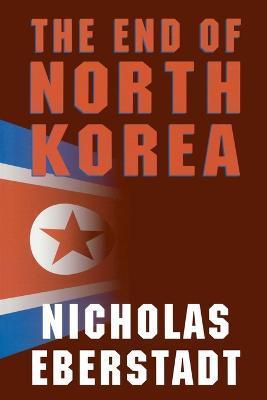The End of North Korea

The End of North Korea
With the establishment in 1948 of a Soviet-sponsored Democratic Peoples Republic of Korea (DPRK) in the northern half of the Korean peninsula and a U.S.-supported Republic of Korea (ROK) in the South, a thousand years of political and administrative unity came to an official end for the Korean nation. At the same time, the political quest for Korean reunification may be said to have commenced. For the DPRK government, the reunification of Korea -- on the DPRK's own terms -- has been an overriding policy objective since its very inception.
Korean reunification on the DPRK's terms was not only feasible but promising at one time. As Nicholas Eberstadt shows in The End of North Korea, the cherished goal of Korean unification is drawing closer -- but it is not a reunification on DPRK terms.
Eberstadt has an extraordinary ability to find meaning observable signals of impending systemic dysfunction, although data are sorely lacking from a regime resolutely dosed to the outside world. He astutely pieces together a picture of North Korea trapped in a self-perpetuating spiral of economic degeneration. The regimes commitment to hypermilitarization (it has been near total wax mobilization since at least the early 1970s) and its insistence on an especially idiosyncratic variant of central economic planning have taken their toll. The most vivid manifestation of systemic woes was the widespread food shortages in North Korea of 1995 and 1996 -- and one incontestable indication of economic collapse is a hunger crisis precipitated by a breakdown in the national food system. Eberstadt observes that the therapies that might restore the regime to health also threaten to destroy its power.
As theeconomic base beneath the North Korean state falters and the prospect of state failure draws closer, the lethal power in the hands of the regime and the leadership's incentives to exploit it to secure foreign support increase. According to Eberstadt, North Korea's endgame exposes all of Northeast Asia, and possibly even countries outside the region, to immediate and mounting peril The author looks at what steps can be taken -- and by whom -- to maximize the likelihood of a benign outcome.
PRP: 121.79 Lei
Acesta este Pretul Recomandat de Producator. Pretul de vanzare al produsului este afisat mai jos.
109.61Lei
109.61Lei
121.79 LeiLivrare in 2-4 saptamani
Descrierea produsului
With the establishment in 1948 of a Soviet-sponsored Democratic Peoples Republic of Korea (DPRK) in the northern half of the Korean peninsula and a U.S.-supported Republic of Korea (ROK) in the South, a thousand years of political and administrative unity came to an official end for the Korean nation. At the same time, the political quest for Korean reunification may be said to have commenced. For the DPRK government, the reunification of Korea -- on the DPRK's own terms -- has been an overriding policy objective since its very inception.
Korean reunification on the DPRK's terms was not only feasible but promising at one time. As Nicholas Eberstadt shows in The End of North Korea, the cherished goal of Korean unification is drawing closer -- but it is not a reunification on DPRK terms.
Eberstadt has an extraordinary ability to find meaning observable signals of impending systemic dysfunction, although data are sorely lacking from a regime resolutely dosed to the outside world. He astutely pieces together a picture of North Korea trapped in a self-perpetuating spiral of economic degeneration. The regimes commitment to hypermilitarization (it has been near total wax mobilization since at least the early 1970s) and its insistence on an especially idiosyncratic variant of central economic planning have taken their toll. The most vivid manifestation of systemic woes was the widespread food shortages in North Korea of 1995 and 1996 -- and one incontestable indication of economic collapse is a hunger crisis precipitated by a breakdown in the national food system. Eberstadt observes that the therapies that might restore the regime to health also threaten to destroy its power.
As theeconomic base beneath the North Korean state falters and the prospect of state failure draws closer, the lethal power in the hands of the regime and the leadership's incentives to exploit it to secure foreign support increase. According to Eberstadt, North Korea's endgame exposes all of Northeast Asia, and possibly even countries outside the region, to immediate and mounting peril The author looks at what steps can be taken -- and by whom -- to maximize the likelihood of a benign outcome.
Detaliile produsului








